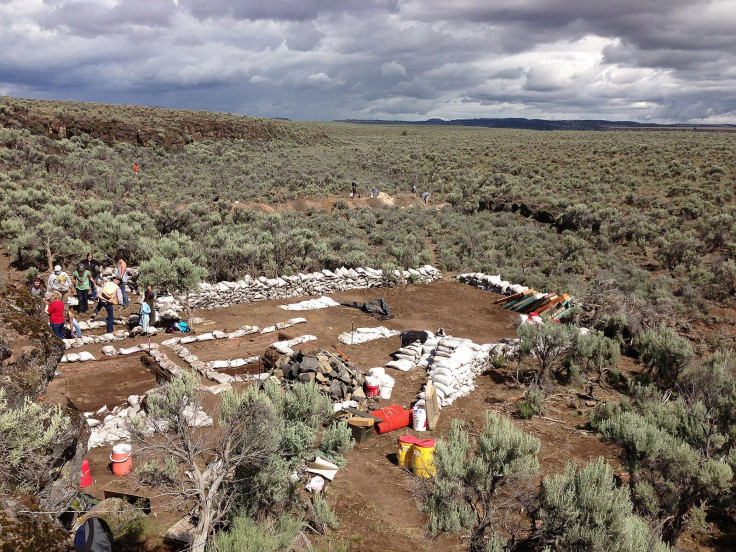Ancient Stone Tool Discovered In Oregon Is A ‘Tantalizing’ Find, Met With Skepticism

A stone tool discovered in the high desert of eastern Oregon may be the oldest sign of human occupation ever found in the western United States, the U.S. Bureau of Land Management announced Thursday. Archeologists uncovered the tool underneath eight inches under a layer of volcanic ash that dates back to the eruption of Mount St. Helens 15,800 years ago.
“When we had the volcanic ash identified, we were stunned, because that would make this stone tool one of the oldest artifacts in North America,” Patrick O’Grady, with the University of Oregon Archaeological Field School, who led the excavations at the Rimrock Draw Rockshelter, where the tool was found, said in a statement. Archeologists have been excavating the site since 2011.
The tool is a small orange agate that archeologists say was used to butcher animals, carve wood and scrape animal hides. Tests performed on the scraper found residue consistent with bovine blood -- specifically Bison antiquus, the predecessor of the modern buffalo.
To date, the earliest known human artifacts west of the Rockies date back to about 13,000 years ago. Those are believed to belong to the Clovis culture, is a prehistoric Paleo-Indian culture known for their hunting abilities and thought to be one of the first group of people in North America. If the latest discovery proves to be as old as believed, it would place humans at the site 1,500 years earlier than previously thought.
The discovery has not been published in any scientific journal, but it has been reported in newsletters and conferences, Bureau of Land Management archaeologist Scott Thomas said.
While O’Grady called the latest find “tantalizing,” the scientific community is not necessarily convinced.
“No one is going to believe this until it is shown there was no break in that ash layer, that the artifact could not have worked its way down from higher up, and until it is published in a convincing way,” Donald K. Grayson, professor of archaeology at the University of Washington, told the Associated Press. "Until then, extreme skepticism is all they are going to get."
© Copyright IBTimes 2024. All rights reserved.






















